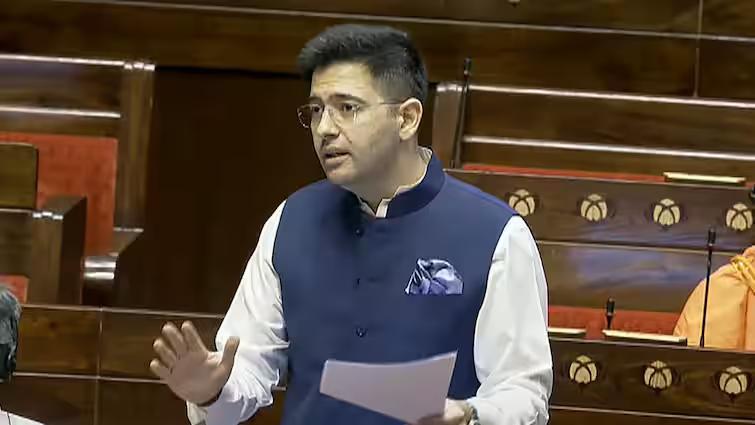
Make in India should expand to Make AI in India: Raghav Chadha
In a recent statement made in the Rajya Sabha, AAP MP Raghav Chadha emphasized the importance of India’s “Make in India” initiative expanding to include “Make AI in India”. Chadha’s comment comes at a time when India is witnessing significant growth in the field of artificial intelligence (AI) and technology. His statement highlights the need for India to not only be a consumer of AI but also a creator of AI, which is crucial for the country’s future development and growth.
Chadha’s statement is based on the fact that both the United States and China are already making significant strides in AI research and development. The US has developed ChatGPT, Gemini, and Grok, while China has developed DeepSeek and Baidu. This raises the question of whether India will be a consumer of AI or a creator of AI.
Chadha’s argument is that India has the most hard-working talent in the world, and therefore, it has the potential to be a leader in the AI revolution. However, if India doesn’t take immediate action, it risks losing its edge and falling behind other countries.
Chadha’s statement is a call to action for the government and the private sector to take a more proactive role in promoting AI research and development in India. The government has already taken some steps to promote AI, such as the launch of the National Artificial Intelligence Mission, which aims to develop AI and machine learning capabilities in various sectors.
However, more needs to be done to create an ecosystem that fosters innovation and entrepreneurship in AI. This includes creating funding opportunities, providing infrastructure support, and creating a favorable regulatory environment.
One of the key challenges facing India in its pursuit of AI development is the lack of high-quality data. AI systems require large amounts of data to train and improve their performance, and India has limited access to high-quality data. This is an area where the government and private sector need to work together to create a data ecosystem that supports AI development.
Another challenge is the need for skilled talent. AI requires specialized skills, such as data science, machine learning, and programming, and India needs to develop a pool of skilled professionals in these areas. This requires a focus on education and training, as well as creating opportunities for young Indians to work on AI projects.
Despite these challenges, there are many opportunities for India to develop its AI capabilities. The country has a strong IT sector, which has already developed expertise in areas such as software development, data analytics, and cybersecurity. Building on this expertise, India can develop its AI capabilities in areas such as natural language processing, computer vision, and robotics.
India also has a strong startup ecosystem, which has given birth to many innovative companies in the AI space. Companies such as Fractal Analytics, Haptik, and SigTuple are already making waves in the AI industry, and with the right support, they can become leaders in the global AI market.
In conclusion, Raghav Chadha’s statement highlights the importance of India’s “Make in India” initiative expanding to include “Make AI in India”. India has the potential to be a leader in the AI revolution, but it needs to take immediate action to develop its AI capabilities. This requires a focus on education and training, creating a favorable regulatory environment, and building a data ecosystem that supports AI development. With the right support, India can become a global leader in AI and drive its future growth and development.






